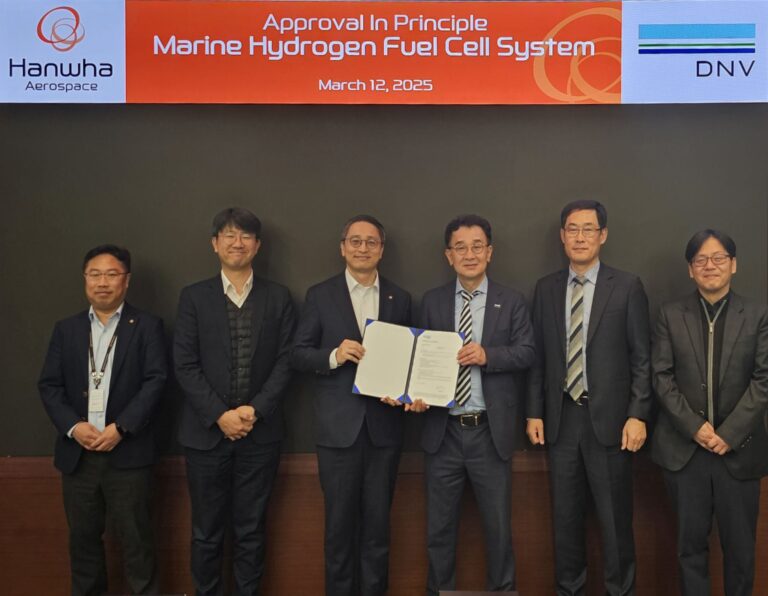It is very obvious that more class approved fuel cells are needed to develop hydrogen-powered ships. Currently the number of available maritime fuel cells is very limited. Therefore this milestone by Hanwha Aerospace is a step in the right direction. This follows on news of another type approval earlier this year.
Certification
Hanwha Aerospace has achieved a significant milestone. The company received Approval in Principle (AIP) from DNV for its 200 kW hydrogen fuel cell system designed for maritime use.
This certification confirms the system’s safety and compliance with international regulations during the basic design phase. It builds upon a previous approval from the Korean Register of Shipping (KR).

Dong-jo Oh, Executive Director of Hanwha Aerospace, stated that this certification validates their hydrogen fuel cell technology at the highest global standards for safety and performance. He emphasized the company’s commitment to collaborating with Hanwha Ocean to target the global zero-carbon vessel market and help the maritime industry reduce carbon emissions.
Full scale marketing
With this approval, Hanwha Aerospace is set to begin full-scale marketing and sales of its maritime hydrogen fuel cells. The company also aims to secure type approval for its polymer electrolyte membrane fuel cell (PEMFC) technology, enhancing its competitiveness in the zero-carbon propulsion systems market. Plans are underway to further develop and commercialize this solution for various marine vessels, from commercial ships to specialized maritime applications.
Ammonia
In June 2024, Hanwha Aerospace, Hanwha Ocean, KR, and ammonia power solutions company Amogy signed a memorandum of understanding (MoU). This agreement focuses on technical collaboration and certification for applying ammonia reformers and ammonia fuel cell systems to ships. Previously, Hanwha Ocean agreed to purchase Amogy’s ammonia-to-electrical power system, which includes Hanwha Aerospace’s hydrogen fuel cell system.
These developments position Hanwha Aerospace at the forefront of eco-friendly marine solutions. The company’s efforts contribute significantly to the maritime industry’s goal of achieving zero-carbon emissions.
Leave a Reply